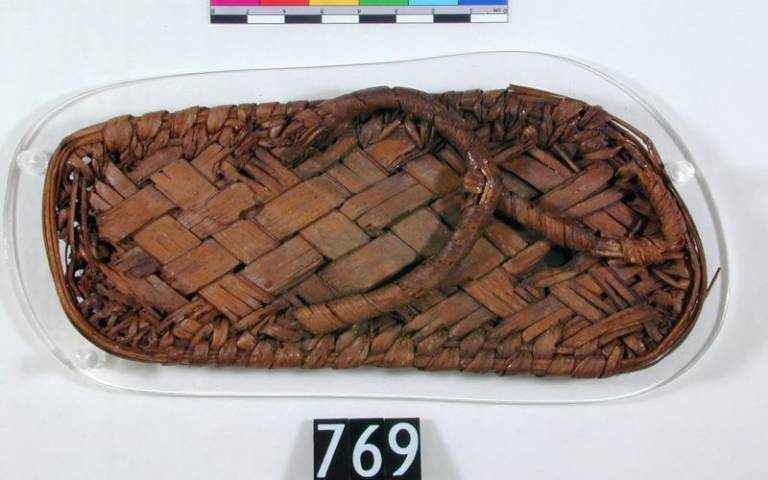New exhibition set to bring Tutankhamun’s childhood to life
10 February 2022
One hundred years after the discovery of Tutankhamun’s tomb, a newly funded project at the Petrie Museum of Egyptian and Sudanese Archaeology will explore the lives of children at the ancient site of Amarna and ask how much has changed in the modern day.

Generously funded by the Museums Association’s Esmée Fairbairn Collections Fund and the Friends of the Petrie Museum, Tutankhamun the Boy: Growing Up in Ancient Egypt, marks the centenary (November 2022) of the discovery of the ‘the boy king’s’ burial chamber, which made him one of the most famous ancient Egyptians ever known.
Running from September 2022 to September 2023, the upcoming season of displays and activities will explore the little-known stories of Tutankhamun’s life as a young boy at the royal palaces of Amarna and Gurob. Objects and archives from the Petrie Museum’s collection will shed light on the people who lived, worked, and played in these vibrant cities thousands of years ago during Tutankhamun’s childhood.
It will also delve into the lives of other ancient Egyptian children, such as the young people who built the royal palaces where Tutankhamun’s family lived, as well as the children that worked with Flinders Petrie in the 19th and early 20th centuries to excavate ancient Egyptian sites.
The project is working in collaboration with the University of Cambridge’s Amarna Project, whose excavations recently found that a workforce of children and teenagers provided much of the labour for the city’s construction.
Tutankhamun the Boy: Growing Up in Ancient Egypt will provide a unique insight into the lives of children in ancient and early modern Egypt, which will be explored through the experiences and views of children in Egypt and East London today. Meanwhile, the project will introduce UK schoolchildren to the country of Egypt by comparing past and present lives, in a celebration of both difference and shared humanity across miles and millennia.
The programme will include:
- A temporary display at the Petrie Museum for school and family audiences, considering the lives of Tutankhamun and other young children at Amarna
- New schools’ resources for Key Stage 2, with new teaching content created by children for children
- New age-appropriate resources for family visitors to the museum (in person and online)
- Skills-sharing programme focusing on community engagement for UK and Egyptian museum staff, with project resources created in both English and Egyptian Arabic
- Cultural exchange opportunities between children in Egypt and east London
- 3D prints of Petrie Museum objects and other learning resources designed for use at the archaeological site of Amarna
- A redisplay of parts of the permanent galleries at the Petrie Museum, as well as online supporting content, developed through co-creation
Partners supporting the Petrie Museum to deliver this project are UCL Widening Participation and the University of Cambridge’s Amarna Project.
Catriona Wilson, Head of the Petrie Egyptian and Sudanese Archaeology Collection, said: “I am hugely excited to celebrate such a significant centenary in Egyptology with 18 months of groundbreaking work that we hope will challenge the way young people in the UK and Egypt encounter ancient Egyptian archaeology.
“The Petrie Museum collection contains many ‘firsts’, but the joys of it for me are the thousands of extraordinary everyday objects that are often easier to relate to because they reveal the daily lives of people living along the Nile Valley.
“We are exploring a different angle on the popular narrative of Tutankhamun and, through collaboration with the Amarna Project, we will peel back the layers to reveal multiple narratives about childhood experience then and now”.
The season will launch in September 2022 with a temporary display at the Petrie Museum for school and family audiences, as well as a hub of activity around the centenary date of 4 November 2022 and will run until September 2023.
Links
- UCL Culture
- The Petrie Museum of Egyptian and Sudanese Archaeology
- Amarna Project
- Esmée Fairbairn Collections Fund
- Friends of the Petrie Museum
Image
- UC769 Child’s left sandal made of woven reeds found at Amarna, 1891-2. Petrie Museum Collections
Media contact
Poppy Danby
Email: p.danby [at] ucl.ac.uk
 Close
Close

